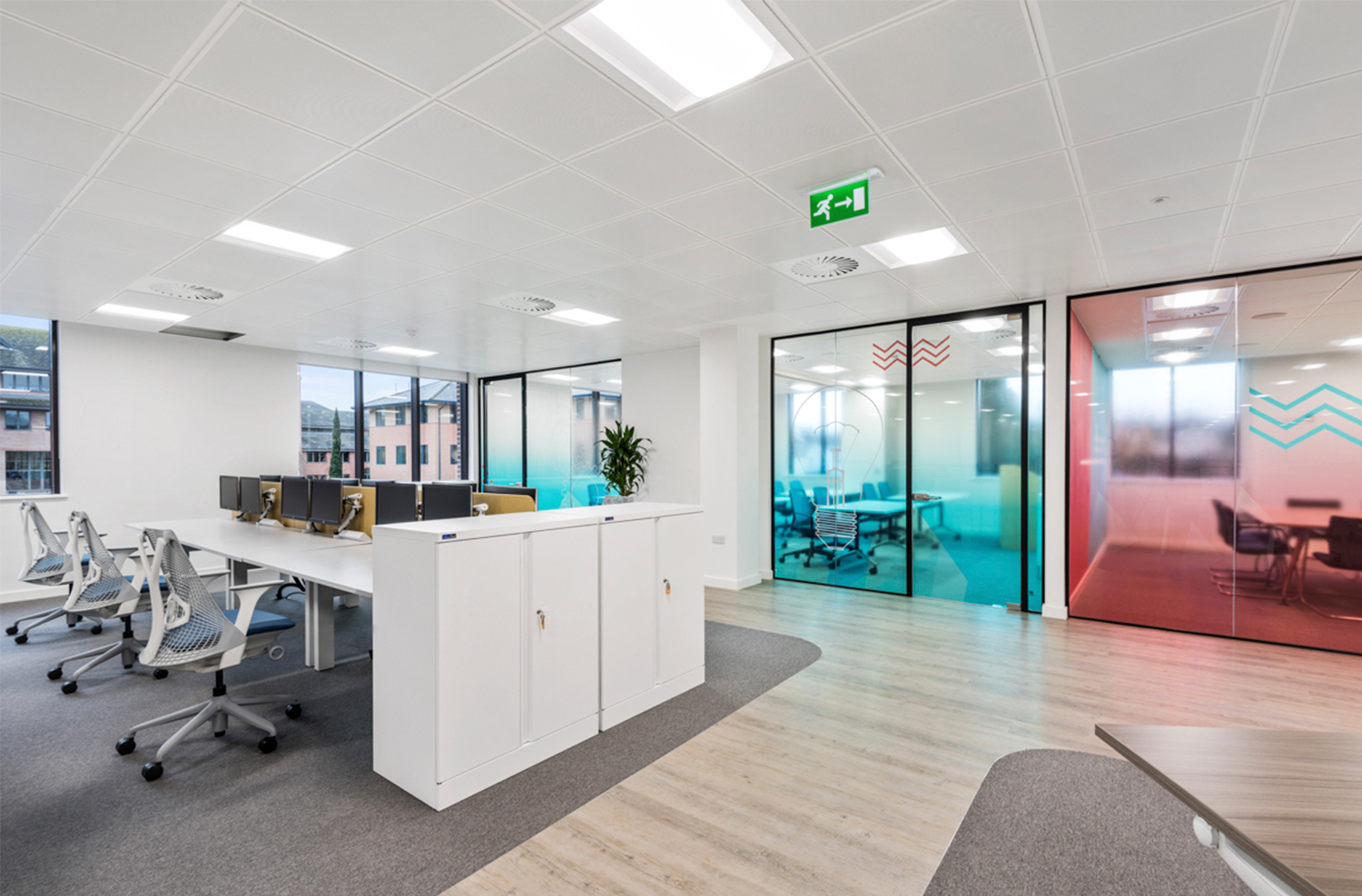
October, 2019
You may think flooring is quite low down on the priority list when it comes to designing your office, but there are many benefits to making the right commercial flooring choice. Whether you need vinyl flooring, carpet tiling or entrance matting, your business will undoubtedly benefit if you spend a little time assessing your commercial flooring options. There are a number of simple considerations:
1. You need to consider the footfall
One reason you need to make the right flooring choice is because of footfall within your office space. While all Duraflor flooring products are for heavy commercial use, some additional research may be required if an area is for particularly heavy footfall. In the case of Vinyl Flooring look for a wear rating Class 33 as a minimum – heavy wear commercial, but note Class 34 is for very heavy wear, and should be considered for multi-purpose halls and department stores.
With Carpet Tiles, again we recommend you ensure you have a Class 33 product rating as a minimum, but keep in mind that yarn structure is also important. Antron in a detailed document about yarn construction, state it is a commonly accepted industry practice to recommend 100% loop pile styles for heavy traffic installations. That isn’t to say that cut pile is not suitable for widespread commercial use, but cut pile carpet tiles are more ideally suited for boardrooms and meeting rooms, in addition to general office environments, as they will provide a softer more luxurious feel.
2. Climate is important
We mention this for a couple of reasons, firstly Carpet Tiles are a good insulator. The fibres are natural insulators with low heat conduction values. In addition, the surface pile of carpet with its millions of tiny fibres traps air and further increases its thermal insulation. Secondly, the UK is notoriously wet and the weather unpredictable – so whether the choice is vinyl or carpet, we highly recommend suitable barrier matting at the entrance to any building, if you wish to extend the life of the flooring and maintain its appearance.
3. You need to make a good impression
The way your floor looks could be key to creating an external impression of your business. If you bring clients into the office, they won’t be impressed with a dirty or scruffy floor. This in one respect means considering the life-time cost of your flooring and making a suitable upfront investment – considering guarantee length, ease of maintenance, colour resistance, wear ratings etc. – but also how well the floor is designed. There are a number of considerations here and it partly depends on message – for inspiration take a look at our Case Study pages. Sometimes you want to make a statement about your brand, other times you might be looking to help workflow and create zones, more often than not, you want a contemporary floor covering that will not easily date.
4. Consider your employees’ wellbeing
We advocate both our Carpet Tiles and Vinyl Tiles when it comes to employee wellbeing.
There are obviously sound insulation benefits to carpet tiles – carpet can reduce the sound of walking by 25 to 34 decibels (whereas laminate flooring for example reduces surface sounds by only 1 to 6 decibels). It is worth noting using underlayment with Vinyl Tiles significantly reduces sound transmission between floors and also makes them an excellent solution for sound insulation. However, carpet is still very much a go-to surface, when discussing the overall impact on acoustics within a space.
The often natural look of vinyl, especially wood-effect, can create a more natural looking environment for employees, yet provide an easy maintenance alternative to natural wood. However, there are plenty of nature inspired carpet tile ranges, including our own Natural Terrain Collection and Freedom Collection.
With regards allergens and carpet tiles we have touched on this before. Many studies suggest that carpet retains dust particles, unlike hard surfaces, where they regularly become airborne. If carpets are regularly vacuumed, these dust particles and associated allergens are removed. But, no matter which choice you make, we strongly recommend a good cleaning and maintenance programme.